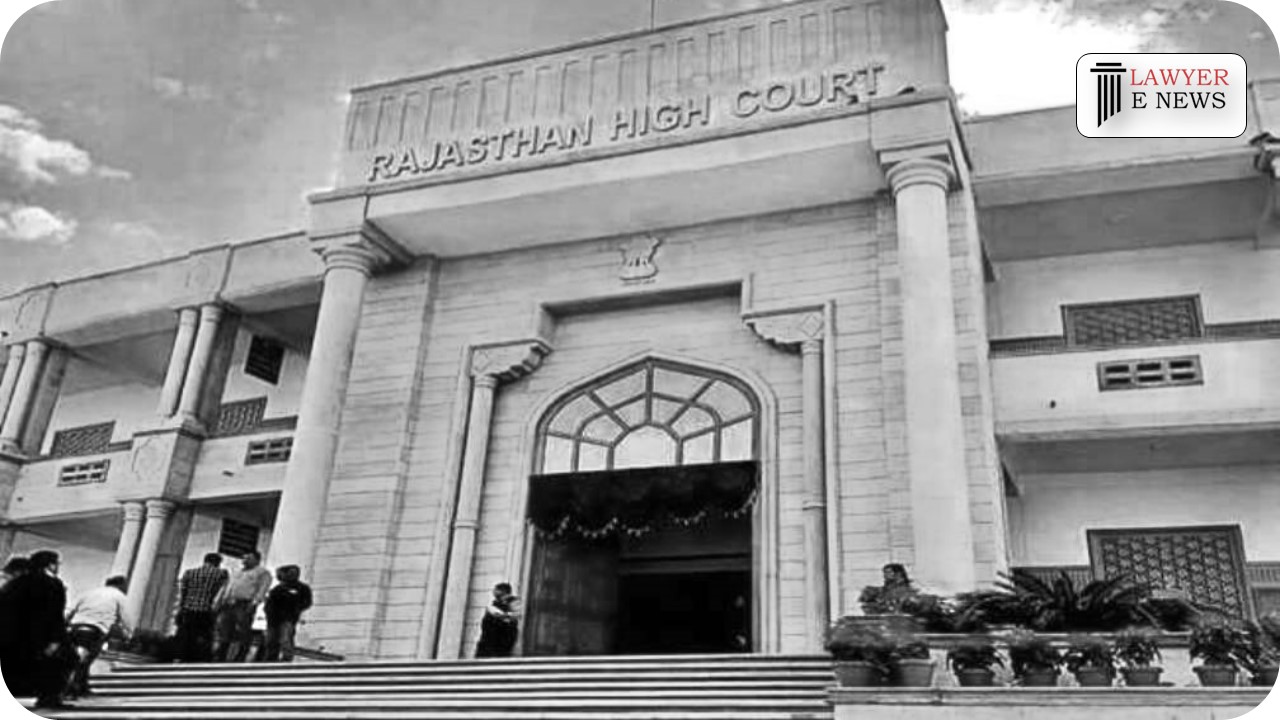-
by sayum
14 February 2026 2:22 PM



The Rajasthan High Court, presided over by Hon’ble Mr. Justice Anil Kumar Upman, has held that the existence of a legally enforceable debt or liability on the date of presentation of a cheque is pivotal for sustaining criminal proceedings under Section 138 of the Negotiable Instruments Act, 1881. This ruling came in a consolidated decision on petitions filed by Shaliwahan Singh Rathore, Ravi Pratap Singh, Nishant Gupta, and Nirbhay Pandey against the State of Rajasthan and M/s Vibrant Academy (I) Pvt. Ltd., seeking to quash criminal proceedings initiated for dishonour of security cheques issued under their employment contracts.
Legal Framework and Facts: The core of the dispute revolves around cheques issued by the petitioners as security under employment contracts, which were later presented and dishonoured. The petitioners contested the proceedings, arguing that no legally enforceable debt or liability existed at the time the cheques were issued.
Court’s Analysis: Justice Upman detailed the legal nuances surrounding the enforceability of debts under Section 138. The court emphasized that the crux of liability under the said section hinges on whether a legally enforceable debt or liability was extant at the time the cheque was presented, not merely at the time of issuance. The Court referenced several Supreme Court judgments clarifying this principle, particularly noting the significance of the presentation date of the cheque in establishing the drawer’s liability.
Key Observations from the Judgment:
Contractual Obligations and Security Cheques: The court observed that while the cheques were issued as security, the validity of the underlying contracts and the enforceability of terms upon breach require thorough examination during trial. This is pivotal in determining whether the dishonour of such cheques constitutes a criminal offence under Section 138.
Jurisdiction of Trial Courts: The High Court underscored the role of the trial court in meticulously examining the facts, the contractual terms, and the circumstances under which the cheques were dishonoured.
Expedition of Proceedings: Noting the prolonged duration since the initiation of proceedings in 2017, Justice Upman directed the trial court to expedite the case to ensure a timely resolution, reflecting the judiciary’s intent to mitigate undue procedural delays.
Conclusion: The petitions were dismissed, affirming the trial court’s jurisdiction to assess the contractual disputes and the enforceability of the cheques under Section 138. The decision reinforces the legal stance that security cheques, when dishonoured, can indeed form the basis for criminal proceedings provided there exists a legally enforceable liability at the time of their presentation.
Date of Decision: May 3, 2024
Shaliwahan Singh Rathore & Ors. Vs. State of Rajasthan & Anr.
